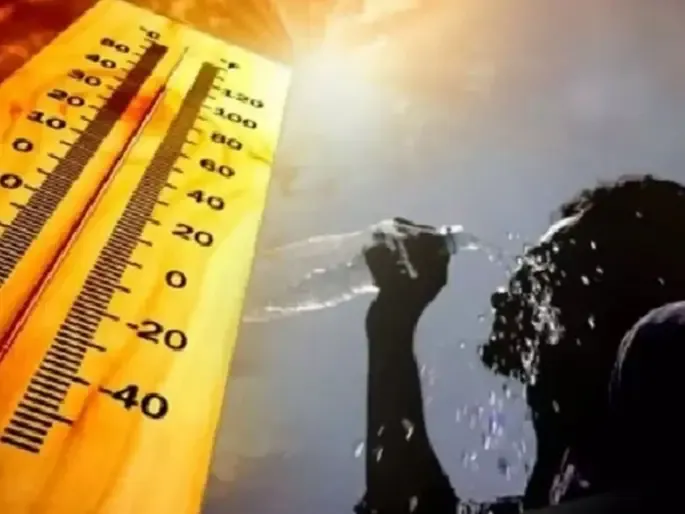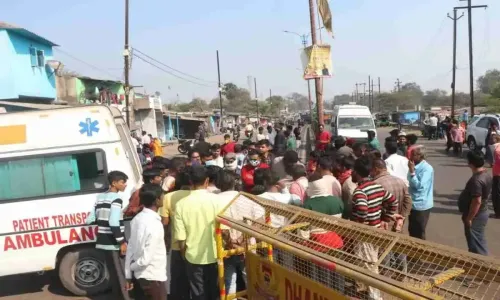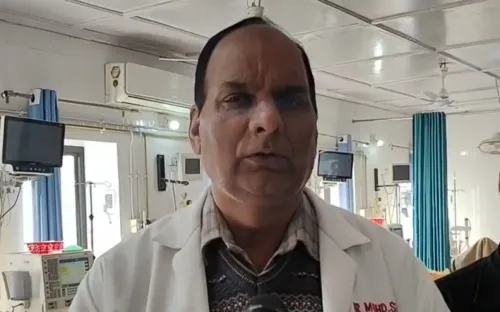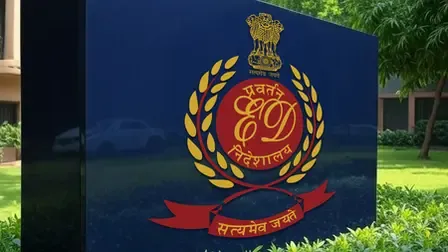Tamil Nadu Government Implements Strategies to Combat Growing Heatwave Threat

Synopsis
Key Takeaways
- Tamil Nadu Health Department is taking steps to combat heatwave risks.
- Medical resources are being stocked and ambulances are on standby.
- Specific SOPs for heat-related illnesses have been established.
- Public advisories recommend hydration and avoiding heat exposure.
- Temperature rises are expected due to La Niña effects and weather patterns.
Chennai, March 26 (NationPress) The Tamil Nadu Health Department has taken proactive measures to confront the escalating risk of heatwaves throughout the state.
State Health Minister Ma Subramanian announced on Wednesday that the department has ensured a sufficient supply of vital medical resources to handle heat-related health issues. The government is diligently monitoring real-time data via the Integrated Health Information Platform as part of the National Programme on Climate Change and Human Health.
“In preparation for potential heatwave cases, we have replenished our medical supplies and have ambulances on standby,” the minister stated. He noted that between two and ten beds have been designated in primary health centers, government hospitals, and government medical colleges statewide for treating those affected by the heat.
A Standard Operating Procedure (SOP) has been established for managing heat-related conditions. Furthermore, measures have been implemented to assure the availability of drinking water and oral rehydration solutions (ORS) at public venues.
The Regional Meteorological Centre (RMC) has issued warnings indicating that maximum temperatures could rise by 2 to 3 degrees Celsius in multiple areas over the next four days. Interior regions are expected to endure harsher conditions due to the diminishing influence of minor weather systems and worsening dry circumstances.
Light to moderate easterly and northeasterly winds in the lower troposphere are exacerbating the temperature increase.
Northern coastal districts—such as Chennai, Kancheepuram, Chengalpattu, and Tiruvallur—are predicted to experience this rise in maximum temperatures.
Meteorologists have linked the early arrival of summer heat to the La Niña effect, which delayed the withdrawal of the northeast monsoon and caused a milder winter.
The absence of cloud cover and reduced sea moisture levels have further intensified the warming trend across both coastal and inland areas of the state. Daytime temperatures are forecasted to remain around 38 to 39 degrees Celsius, consistent with previous years' patterns.
Notably, inland districts like Karur, Erode, and Salem have already recorded significantly high temperatures as early as February.
Experts caution that in the days to come, certain interior locations may see temperatures soar by 1 to 2 degrees Celsius above normal levels.
In light of the rising temperatures, the Directorate of Public Health and Preventive Medicine (DPH) has issued a comprehensive advisory advising the public to take precautions against heat-related ailments.
Residents are encouraged to stay well-hydrated by consuming fluids like lemon water, buttermilk, lassi, and fruit juices with a pinch of salt. They are also urged to eat fruits and vegetables rich in water and remain in cool, well-ventilated areas. During the day, windows and curtains should be closed, while at night they can be opened for ventilation.
The health department suggests scheduling outdoor activities during cooler times of the day and avoiding exposure from noon to 3 p.m. Individuals should also avoid alcohol, caffeinated and carbonated beverages, high-protein foods, and stale food.
Authorities have urged residents to seek immediate medical attention if they experience symptoms such as dizziness, headaches, nausea, or signs of heat exhaustion. With temperatures expected to remain high in the coming days, health officials emphasize the importance of staying alert and adhering to safety measures to avert heat-related complications.










